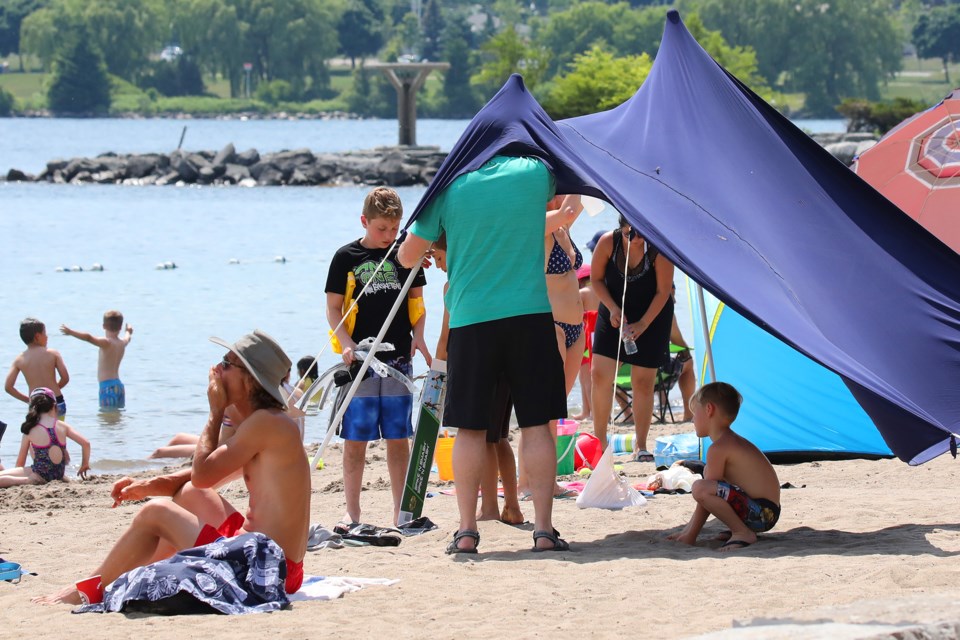It’s going to be a hot one out there for the next few days, but all beaches are good to go if you’re looking to cool off with a splash.
It's been a relatively good year for local beaches and the lack of swimming advisories.
Of the five beaches that the Simcoe Muskoka District Health Unit tests — including Centennial, Johnson’s, Minet’s Point, Tyndale and Wilkins — only Minet’s Point in the south end had an advisory posted in the month of July.
The somewhat secluded beach was posted on July 16 due to high bacteria levels, but the advisory was soon lifted after follow-up testing.
“There are a number of reasons as to what increases the bacteria in water and once a week we test the beaches in order to ensure they are safe,” Jenee Wallace, the health unit's safe water program co-ordinator, told BarrieToday.
“Warmer weather doesn’t mean the water won’t be OK to swim in," she added. "However, one should always check the advisory list on our website to make sure all is good to head to the beach.”
In the health unit's large coverage area, only two beaches currently have swim advisories posted. They are Gull Lake Park Beach in Gravenhurst and Pete Pettersen Beach Park in Midland. Both were posted last Thursday.
During a swim advisory, the beach is posted with warning signs that the most recent water samples showed bacteria in numbers that may increase a person's risk of developing minor skin, eye, ear, nose or throat infections or stomach illness. Anyone who chooses to swim during an advisory should avoid dunking their head or swallowing the water.
Heavy rainfall, cloudy water, a large number of swimmers, a large number of birds, shallow water, wet sand, wind and high waves can all attribute to water levels exceeding bacteria levels. Usually, those are areas where the water is more shallow.
Wallace said there are two particular things they are looking for when water is tested.
"E. coli bacteria is something that is looked for when the lab gets a sample,” she said. “Another important one is blue-green algae, which can bloom particularly in the warmer weather in shallow, fairly still water. Anyone who sees any should contact the health unit immediately.”
The health unit’s website is updated consistently when a beach advisory, or closure, is posted.
A beach is closed when a significant risk to health and safety has been identified or when a potential adverse event occurs, such as a sewage or chemical spill. Beach closures are rare, according to the health unit.



